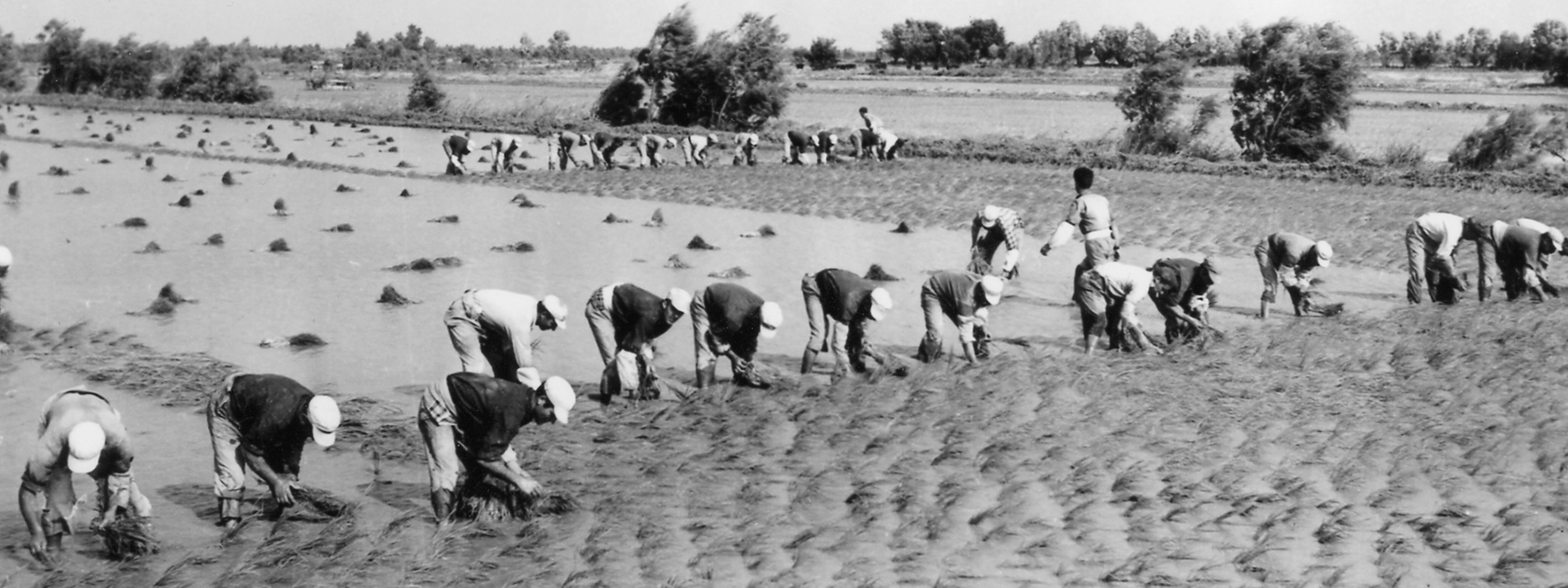


We are in September 1940.
Paul Ricard is with his associates in a bistro located in Sainte Marthe, one of Marseille’s neighborhood. On the radio, he hears the announcement that the production and consumption of alcoholic drinks above 16% are now forbidden on the French territory. This is at this exact moment that Domaine de Méjanes came into the light and that Paul Ricard declared with his legendary determination to his stunned employees: “We are going to become farmers and produce milk in the Camargue!”.
Part of Paul Ricard’s workers move to the Domaine de Méjanes and become builders. They build their house, sheds, and shelters for the cows, pigs, and sheep they will breed. They also become farmers that work Méjanes’s land to feed their family and extended circle. This was a big plan. One massive project for the vast domain of 1200 hectares made of untamed and salty wilderness. A project that worked out.
We are in 1941. Hundred dairy cows are brought to the Domaine de Méjanes. They quickly produce 2500 liters of milk per day. It is the equivalent of a quarter of the supply required for the children living in the region of the Bouches du Rhône. The cows soon start to have calves, and the workload adds up to taking care of 500 pigs, chickens, draft horses, and cattle-rearing. Besides, the agriculture machinery available in the domain is not suitable for land farming; all of the roubines (irrigation canals) are constructed by hand with shovels. The workload is colossal. Water needs to be desalinated. For that purpose, rice is cultivated along with corn and potato. Orchards are also developed. This considerable production feeds all of the Méjanes’s workers, the associates and families, and extended circle. All of the surplus crops are given to the neighboring towns. Paul Ricard used to say: “What a joy to have been able to turn a white and pristine land into a luxuriant green one”.
We are in the middle of the Second World War in 1942. Around 20 workers and ten families live on the Domaine de Méjanes. The steward, Raoul Schmitt, manages to have a teacher come to the domain to teach the children daily. This arrangement avoided having to travel aboard the epic Gazo-Bois truck with 15 children to Albaron every day. The people living in Méjanes are entirely independent; Paul Ricard’s associates, their families, and nearby locals profit from their farming. Raoul Schmitt’s grandson is in charge of keeping an eye on Germans arriving. As soon as he rings the alarm, everyone rushes to hide the farming gear in the Palunette near the Vaccarès pond.
The Germans often come to Méjanes to get meat and milk. To keep enough supplies for the people on the land, the steward holds two separate accounting books and have part of the pigs and sheep slaughtered at night.
The youth working on the domain is threatened to be sent to Germany for compulsory work enforced on the French workers during the war. However, Paul Ricard comes up with clever tricks, and with the help of local entrepreneurs, succeeds in protecting them. This land, Méjanes, feeds and protects its own.
All of his workers and associates reinvent themselves on the domain. There is hope for a new life, to learn new skills which lead to revealing a new vocation for some. Most of all, everyone has the substantial energy to keep up and survive. Survive because there will be an after, better times to come.
Paul Ricard wrote, “If I were to say which were the best years of my life, I would probably answer that these were the ones despite the suffering that the war inflicted on us. It gave us a passion for creating an unlimited food supply.”